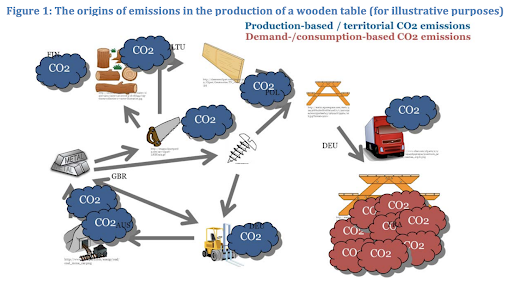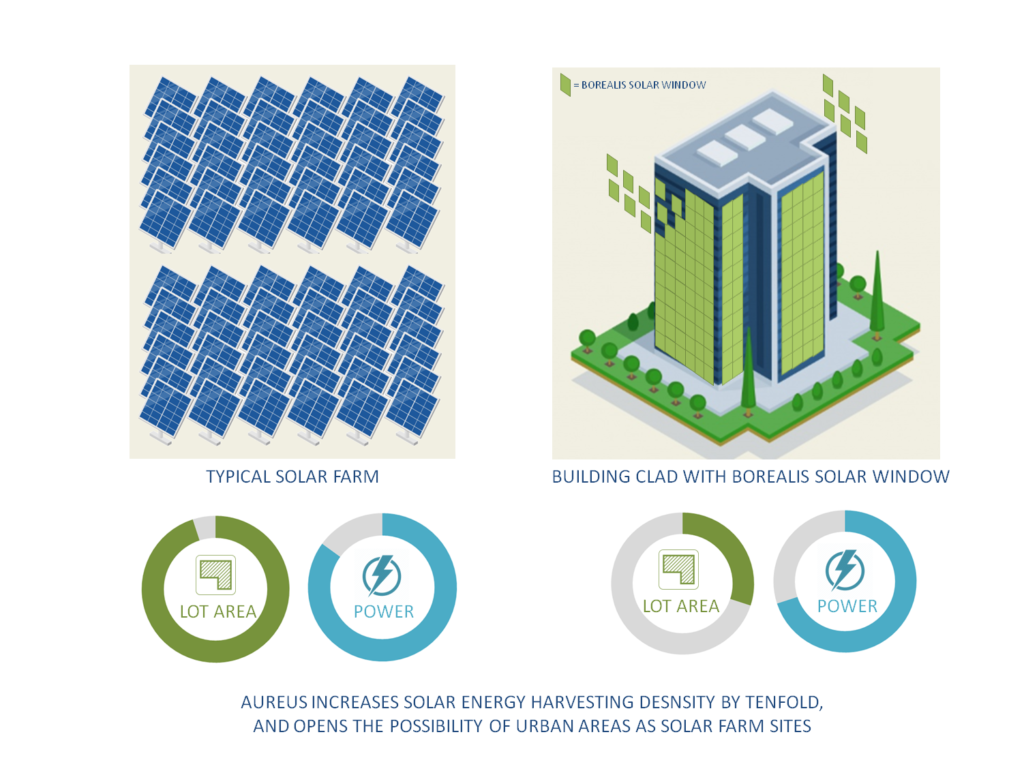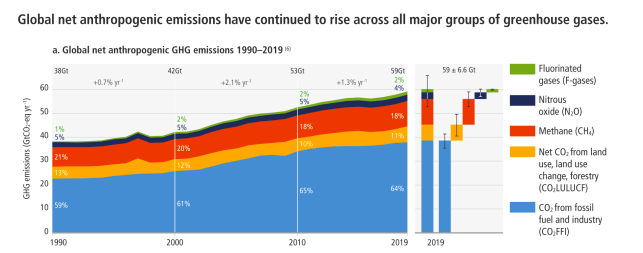
Happy Tuesday. Here’s a fun fact to impress your friends – scientists claim mushrooms communicate with each other using 50 ‘words’ (*insert fungi pun*)…
In today’s edition:
🦏 The world’s first ‘rhino’ bond
🌤 Solar panels made from food waste
📝 What the IPCC report means for business

Sweden is the world’s first country to target consumption-based emission cuts
National climate targets… are measured against emissions created in a country’s territory but don’t account for goods consumed in countries produced elsewhere (a t-shirt produced in China but used in America = Chinese emissions).
Swedish leadership… Sweden, 60% of whose emissions originateabroad, just became the first country globally to includeconsumption-based emissions within climate targets.
Importance: Countries’ emissions reductions have partly been driven by outsourcing carbon-intensive industries (like manufacturing) to countries such as China. A consumption-based emissions approach brings transparency to climate targets and supports global progress to cut emissions.
Challenges: 1) A lack of uniform international standards for calculating emissions 2) A lack of transparency on emissions-intensive processes in foreign nations.

Investor coalition pressures polluting companies to disclose climate risks
The situ: 34 investors from theInstitutional Investors Group on Climate Change (IIGCC), who represent over $7trn of assets under management, have sent a letter to 17 companies (including BP, Shell & Volkswagen) accusing them of continued omission of climate risks from their reporting accounts.
Why?… The letters argue that investors need greater reassurance that high-emitting companies consider how climate change will impact their future economic performance.
The importance: Investors are increasingly demanding credible climate plans and robust disclosures. The letters are also timely, as the UK Government is introducing mandatory climate risk disclosures for some large businesses this week.
World Bank sells first ‘rhino’ bond to help South Africa’s conservation efforts
The World Bank issued the world’s first wildlife conservation bond, raising $150 million to help efforts to increase the endangered black rhino population in South Africa. The five-year ‘rhino bond’ issued on Wednesday will pay investors returns based on the growth rate of black rhino populations, and themoney raised will be used for conservation efforts. Helping to tackle the $1 billion a day funding shortfall for conservation.
🤖 Future of Tech (1-minute read)
Solar panels, made from food waste, produce energy without sunlight
A new solar panel has been developed at Mapua University, which turns waste crops into cladding for buildings that can generate clean energy from ultraviolet light. The concept, called AuREUS, uses luminescent particles from fruit and veg waste. Whereas traditional solar panels (which rely on visible light) only work in clear conditions, this material can work even when cloud cover is present (produce energy 50% of the time vs 15-22% for standard solar panels). The crops used are sourced from local farmers who have been affected by severe climate change-induced weather disruptions – giving them an avenue to monetise lost yields.

The world’s first genetically modified (GM) wheat = big environmental benefits
Argentina has received regulatory approval to export the world’s firstgenetically engineered wheat to Brazil.
Why? The wheat has been genetically modified to be drought-tolerant and prevent decreases in yield due to limited rainfall.
The environmental benefits:When yields are down, there’s an expansion in the total area of wheat planted, and limited rainfall results in expansion of irrigation use. This means more deforestation, ecosystem destruction, greenhouse gases, and freshwater use. GM wheat removes the need for land expansion and irrigation while also improving crop adaptation to warmer temperatures due to climate change.
Approach with caution… as thedebate on GM crops is longstanding – with some scientists wary of new risks to biodiversity and human health.
💡Deep Dive (1-minute read)
IPCC climate mitigation report – 3 ways businesses can respond to the latest climate science
The Intergovernmental Panel on Climate Change (IPCC)’s latest report states that the coming years are crucial if decarbonisation is to occur at a rate that avoids the worst of the climate crisis.
While the top-level calls to action are for nations, there are some key messages for the private sector, too – these were:
Move Finance: By 2030, global net emissions need to be 48% lower than 2019 baselines for a 1.5C scenario – this will require (at least) x3 climate finance. Capital needs to transition from fossil fuels into clean energy, low-emitting Agri and related solutions.
Assess the lobby: Historically, engagement between policymakers and the private sector has weakened climate action – with high-carbon industries lobbying thegovernment to promote a slower transition. Businesses need to ensure their trade bodies support policymakers with a net-zero transition.
- Carbon sequestration: Carbon removal solutions need to be rapidly scaled over the coming years in tandem with cuts to emissions. Credibility around carbon offsetting needs to be coupled with reducing emissions across value chains (including scope 3/indirect emissions).
One thing not mentioned: Businesses regularly engage with customers, clients and staff and therefore can empower behavioural change which will drive sustainable action across the entire supply chain.

💭 Little Bytes
Quote: “Providing sustainable energy to people who have lost almost everything is just so critical. It reduces vulnerability but also brings people back up from a position of disempowerment and dependency to one where they’re starting to contribute back to thecommunity”. Andrew Harper, thespecial adviser on climate action to the United Nations high commissioner for refugees.
Stat: Air pollution now directly affects 99% of the world
Watch: Chinese startup, DaddyLab, screens everyday objects to identify toxic chemicals.
🗞 In other news…
UK retailer M&S to team up with a kid’s second-hand resale marketplace
Rio Tinto investors have voted against the company’s financial statements over a lack of clarity about climate change risks at the annual AGM
Eat Just’s Vegan Mung Eggs Receive Exclusive Regulatory Approval in E.U.
Chocolate brand Koa usesblockchain to show exactly how much it pays every cocoa farmer
- Fast fashion: European Union reveals fast fashion crackdown
Deal Room
Israeli robotic beehive maker, Beewise, raises $80 mln in Series C funding for its Climate controlled and using automated harvesting sheds that promote the survival of bee hives.
France-based, Sweep secures €66.5M in Series B funding for its platform that helps companies understand and reduce their emissions across their value chain.
FarMart banks in $32Mn in Series B to digitise India’s agriculture supply chain
Manifest Climate raises $30 million in Series A for its AI-powered platform that provides alignment with theTask Force on Climate-Related Financial Disclosures (TCFD)
Porto-based Fibersail takes off with €5 million in seed funding to reduce the cost of wind energy through their data-driven monitoring tool




